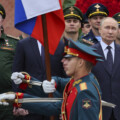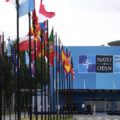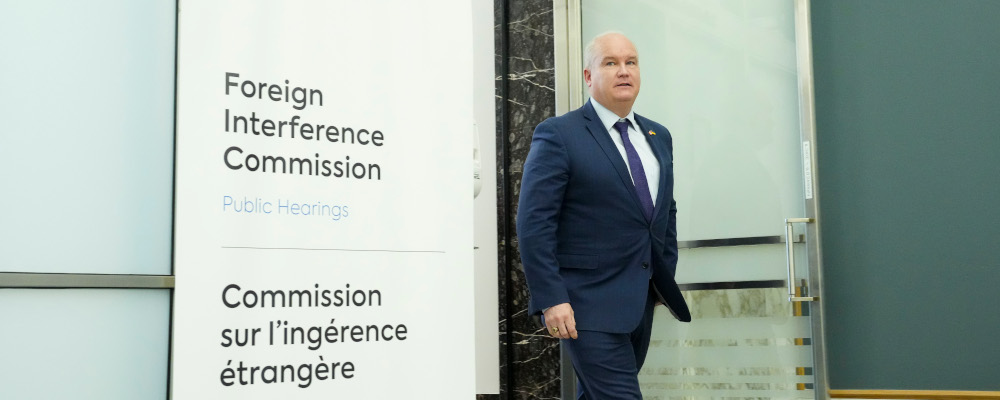With the release of the Public Inquiry into Foreign Interference interim report, it’s clear that Canada has joined fellow democracies in the dubious club of targets for foreign actors seeking to subvert our elections. A recent conference in Ulaanbaatar, Mongolia—at which I was a guest speaker—shows just how far things can slide without vigilance and countermeasures.
On April 25, I was one of several foreign speakers at the Mongolia: An Oasis of Democracy conference in Mongolia’s capital. While I confined my remarks to support for democratic norms and economic development, it became clear upon arrival that the upcoming national elections in June 2024 could be the last free elections after a three-decade period of contested and free contests.
Mongolia, a sparsely populated nation of 3.3 million people, is blessed with a rich culture and heritage (Genghis Khan!) but is troubled by a rough neighbourhood. Russia is to its north and is the source of ninety percent of its energy needs. China is to the south and is where 90 percent of Mongolia’s exports go. Its politics are dominated by two political parties; the Mongolian People’s Party is the rebranded ex-Soviet era party that oversaw Mongolia as a Soviet satellite for 70 years. It won the 2020 election in a landslide. Then there’s the Democratic Party, a more free market and Western-oriented party. It’s in the opposition but holds some provincial and local seats of power, such as South Gobi.

What’s become evident is that Mongolia is in serious danger of “backsliding,” the term Mongolians use to describe increasingly illiberal behaviour that portends a slip into authoritarianism. Some examples cited to me included charges laid by the government against opposition MPs; the arrest of a journalist, creating a “chilling effect”; and egregiously redrawn electoral boundaries to favour the MPP. Even more concerning are confirmed reports of overt Russian interference in both political parties but mostly favouring the MPP. This includes bribery payments to parliamentarians in exchange for advancing Russian interests and perspectives. Already Russian and Chinese agents issue the siren call of authoritarianism: that Mongolia’s interests lie with the economic and political norms and methods of its two neighbours, not with democratic countries like Japan or Korea or with the rest of the West.
At the democracy conference itself there were signs of strains. During a panel session on economic development, a disrupter emerged from the audience to denounce political corruption. She was eventually escorted out after having had her say. Was this political theatre? Legitimate dissent? Or another paid Russian agent? Many thought it was the latter.
Why should we care about Mongolia? Economics and geopolitics certainly. Mongolia is the home to numerous riches: copper, gold, critical minerals, and natural gas. In a decarbonizing world, Mongolia could be a key player. In terms of Canada, our country has invested over USD $10.6 billion in the country, primarily in the mining sector. The Oyu Tolgoi mine in South Gobi, which I had the opportunity to view, is a huge sprawling property run by Rio Tinto and extracts both copper and gold. Canada’s Export Development Canada has invested over $1 billion in this project. That’s needless to say a huge commitment.
While I was in Mongolia, the country was also hosting U.K. Foreign Secretary Lord David Cameron, who emphasized Mongolia’s importance as an open market and democracy, and that his country stood behind the country’s sovereignty. Canada must do the same. While we grapple with Chinese interference, Mongolia’s fledgling democracy is facing the same from two aggressive neighbours.
The Mongolians I spoke with, regular people but also the governor of South Gobi and the opposition leader in Mongolia’s parliament (called the State Great Khural), are committed to democratic values and norms and welcome inclusion in Western institutions. They are proud of their past but anxious to expand economic development, infrastructure, and the provision of education, welfare, and health care for their citizens.
This is a cautionary tale. It’s a dangerous world, and Canada is clearly not immune from state and near-state foreign actors seeking to undermine our institutions. Mongolia is only slightly ahead of Canada when it comes to suffering from its political impact. We should heed the lessons and take the recommendations of the Public Inquiry into Foreign Interference seriously. At the very least the federal government must enhance our defences against interference, and stop being the easy target we apparently are.
Finally, we must work with our allies, indeed all freedom-loving nations, to thwart these threats. This is not a fanciful or theoretical issue. It’s real and it’s now, in Mongolia, in Canada, and elsewhere. The sooner our governments and institutions realize this, the better.
Recommended for You

Need to Know: Mark Carney’s digital services tax disaster

‘They’re voting with their eyeballs’: Sean Speer on the revealed preferences of Canadian news consumers

‘I want to make Canada a freer country’: Conservative MP Andrew Lawton talks being a newbie in Parliament, patriotism, and Pierre Poilievre’s strategy

‘Putin has no intention of stopping this war’: Sir Bill Browder on three years of war in Ukraine and how Russia is evading sanctions



